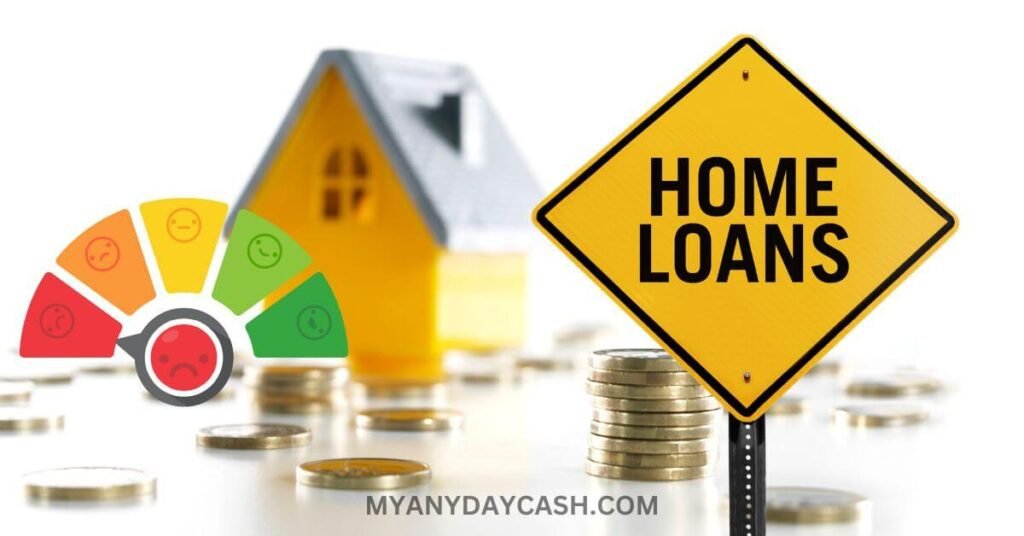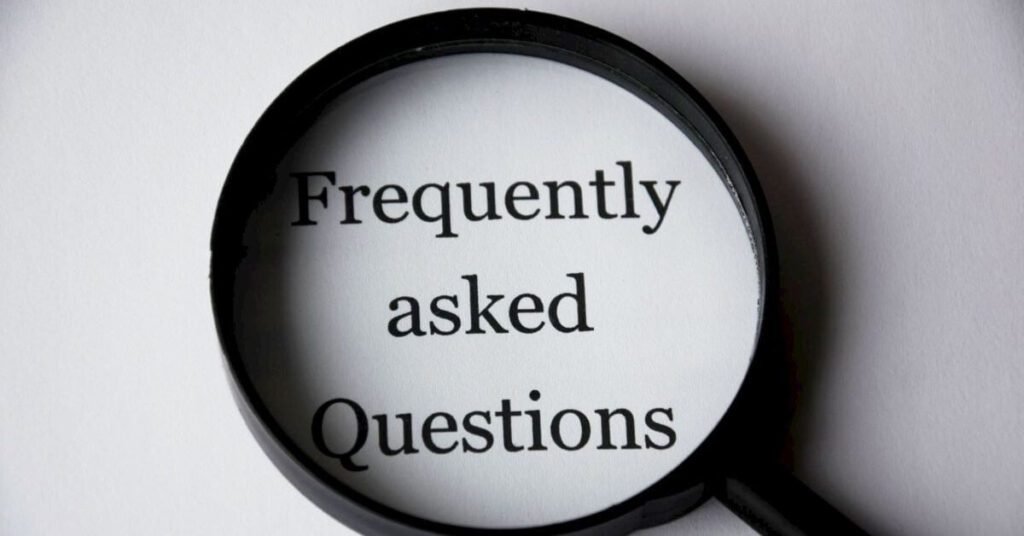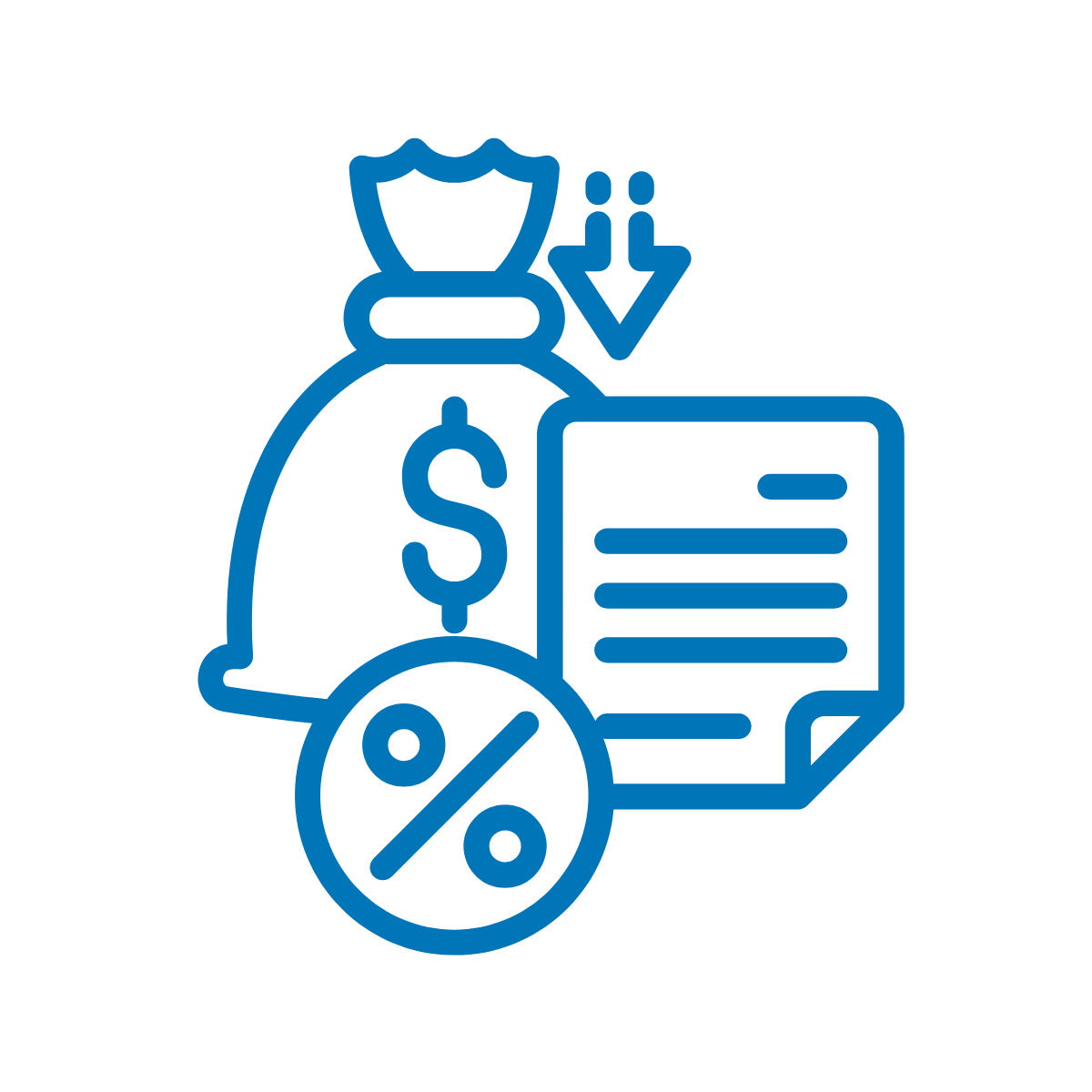
Living in a home, you can call your own is a dream many cherish, yet financial setbacks can pose significant hurdles. In particular, poor credit home loans have emerged as a lifeline for potential homeowners whose credit scores have taken a hit. Despite the stigma around bad credit, it’s essential to understand that many credible lending institutions are willing to help. This article guides those navigating the often confusing landscape of home loans designed for individuals with poor credit.
Although acquiring a home loan with poor credit might seem daunting, it’s possible. Financial institutions comprehend that bad credit does not necessarily equate to financial irresponsibility. Life events like divorce, sudden unemployment, or medical emergencies can lead to poor credit. However, with a systematic approach and a thorough understanding of how these loans function, potential homeowners can still find doors open.
Understanding Bad Credit and Credit Scores
Regarding mortgage loans, your credit score is a critical determinant that lenders consider. This three-digit number is more than just a figure; it’s a numerical representation of your creditworthiness, directly influencing your borrowing capabilities. Specifically, in the context of poor credit home loans, understanding how these scores are evaluated can empower potential homeowners to make informed decisions.
Per the guidelines set by FICO scoring systems, a credit score falling under 580 is generally categorized as poor credit. Lenders classify these scores as ‘poor,’ often resulting in higher interest rates or outright loan application rejection. However, it’s important to remember that each lender may have different credit score requirements. Factors that could land you in the ‘bad credit’ category include missed payments, high credit utilization, and a history of bankruptcy or foreclosure.
Types of Credit Scores
FICO scores, ranging from 300 to 850, are the most prevalent credit scores in financial lending decisions. These scores are broken down into distinct brackets: Exceptional (800-850), Very Good (740-799), Good (670-739), Fair (580-669), and Very Poor (300-579). Potential borrowers with scores in the Very Poor range often face difficulties securing traditional home loans, hence turning to poor credit home loans.
Understanding your credit score and how it’s calculated is a fundamental step to successfully navigating the landscape of bad credit home loans. Key factors influencing your FICO score include payment history, credit utilization, length of credit history, new credit, and credit mix. By focusing on these areas, borrowers can improve their scores over time.
Tips for Getting a Mortgage with Bad Credit
Homeownership is still within reach even if your credit score is less than stellar. Improving other aspects of your loan application can help tip the scales in your favour. Reducing your debt-to-income ratio, increasing your down payment, and showing a steady income or savings can make you a more attractive candidate for lenders.
Looking at more affordable homes or considering more flexible options like FHA loans or VA loans for veterans (even with poor credit, VA home loans can be obtained) can also increase your chances of approval. Comparing rates from different lenders can ensure you secure the best deal. Check our guide on bad credit loans for military for more insights on VA loans.
Lender Options for Bad Credit Home Loans
Several lenders in the market specialize in offering poor credit home loans. Carrington Mortgage Services, for instance, is renowned for its flexibility in dealing with borrowers with low credit scores. Likewise, Guild Mortgage offers government-backed loan products that could be a good fit for borrowers with bad credit. If you want to refine your search for suitable lenders, read our guide on getting approved for bad credit loans in California. Other lenders such as MyAnyDayCash, Sebonic Financial, Rocket Mortgage, and Homepoint Financial also have products tailored for borrowers with poor credit. It’s essential to conduct thorough research and compare loan terms across different lenders to ensure you find the best fit for your unique circumstances.
Tips for Improving Credit Score
Remember, having a poor credit score isn’t a permanent predicament. Many methods exist to enhance your credit standing over a period. One practical approach involves ensuring punctual payment of loans and bills, which can significantly positively influence your credit score, given that payment history is crucial in calculating credit scores. Moreover, paying down debt strategically and keeping older accounts open can help lower your credit utilization rate, a factor that makes up almost 30% of your FICO score. Also, avoid making excessive credit applications as they can result in hard inquiries, which may temporarily lower your credit score. If you’re a self-employed individual looking for loan solutions, consider checking out our guide on bad credit loans for self-employed.
Factors to consider before taking out a mortgage with bad credit
Before committing to a bad credit home loan, it’s crucial to understand how it could impact your financial well-being. The affordability of mortgage payments based on your monthly income is critical. Remember, while bad credit home loans provide an opportunity for homeownership, they often come with higher interest rates, increasing the overall cost of the loan. You must also evaluate your debts and overall financial readiness for homeownership. Can you manage the monthly payments alongside your other financial obligations? If not, improve your credit score and financial standing before seeking a home loan.
Decision: Getting a Bad Credit Home Loan or Waiting
While securing a home loan with bad credit is possible, you need to consider the impact of your credit score on the interest rate you’ll receive. The lower your credit rating, the more elevated the interest rate you’ll likely encounter, which can drastically inflate the overall expenditure associated with your loan.
By waiting and working on improving your credit score before purchasing a home, you could save thousands of dollars in interest over the lifetime of your mortgage. For more insights into the implications of your credit score on loans, read our post on payday loans with poor credit. Exploring alternatives if unable to secure a mortgage with bad credit. Other alternatives exist if you cannot secure a mortgage due to bad credit.
Personal loans, for example, can be used for various purposes, including consolidating and paying down high-interest debt. However, they come with their own set of limitations when used for down payments. Looking at smaller mortgages or fixer-upper homes that are more affordable could be another option. For more tips and guidance on managing poor credit, visit our comprehensive guide on bad credit loans in Ohio.
Frequently Asked Questions

Where can I borrow money with bad credit?
If you need better credit, there are still avenues for borrowing money, particularly when it comes to home loans. Several lenders specialize in products designed for people with suboptimal credit profiles, including very bad and poor credit VA home loans. Companies like Carrington Mortgage Services and Guild Mortgage, MyAnyDayCash are known for their willingness to work with borrowers who have low credit scores.
Additionally, some government programs, such as FHA and VA loans, are more lenient in their credit requirements. For example, VA loans with poor credit might be feasible if you’re a veteran. However, these loans still have criteria that need to be met. It’s essential to research and compare your options, including the loan amounts and interest rates offered by different lenders, to make the best choice for your financial situation.
What is the lowest score to get a home loan?
The lowest credit rating required for acquiring a home loan depends on the loan type and the lending institution involved. Typically, FHA loans are seen as one of the most accessible types for those with poor credit. FHA loans usually require a minimum FICO score of 580 for the borrower to take advantage of their 3.5% down payment program.
That said, some lenders may accept FHA loan applications from borrowers with scores as low as 500 if they can provide a larger down payment, typically 10%. This is considerably less than the credit score of 620 typically required for most standard loans. It’s important to note that these are general guidelines, and the specific requirements can vary from one lender to another. Remember that lower scores generally result in higher interest rates, meaning your home loan may cost you more in the long run.
What is the lowest credit score?
In most scoring models, the lowest possible credit score is 300. Among the most common credit evaluation metrics, FICO scores span a spectrum from 300 to 850. A score of 300 is considered very poor, and having such a score would severely limit your ability to secure credit or loans.
This score is typically a result of multiple negative items on a credit report, such as bankruptcy, foreclosure, or a history of missing payments. If your credit score lies within this range, consider it advantageous to consult with a credit expert on strategies to enhance your score before initiating a home loan application. Our blog post on bad credit loans for self-employed individuals provides more insights into improving credit scores.
Does credit score affect home loans?
Yes, credit scores significantly impact home loans, affecting both the loan approval and terms. A higher credit score typically makes you more appealing to lenders as it indicates a lower risk of default. As such, individuals with high credit scores often have access to the most favourable loan terms, including lower interest rates and more significant loan amounts.
On the other hand, if you possess a low credit score, lenders might classify you as a higher-risk borrower. This can lead to higher interest rates and more stringent loan conditions. Sometimes, you may be denied a loan outright because of bad credit. However, with certain types of loans, such as FHA loans or bad credit home loans, individuals with lower scores may still be eligible for borrowing, albeit under less favourable terms.
What is the definition of a bad credit score?
Credit scores fall into various ranges, which lenders use to assess the risk level of a potential borrower. In the FICO scoring model context, a bad or poor credit score is generally considered any score under 580. This range indicates a history of missed payments, high debt levels, or other negative factors resulting in a lower score.
This range is one step above the ‘very poor’ range (300-579), where securing loans or credit can be difficult. It’s important to remember that even within the ‘bad’ range, the lower your score, the more difficulty you’ll likely face in securing a mortgage or other types of credit. Our post on getting approved for bad credit loans in Maryland provides more information on managing and improving bad credit scores.
Impact of bad credit on closing costs and mortgage insurance premiums
Bad credit can lead to higher closing costs and mortgage insurance premiums (MIPs). The higher interest rates often associated with poor credit home loans can increase the overall cost of the loan, including the upfront costs at closing. In addition, lenders require more enormous origination fees or discount points as a form of risk mitigation, which can contribute to higher closing costs.
Moreover, if you can secure an FHA loan with a lower credit score, you’ll likely need to pay an upfront MIP and possibly ongoing MIPs, which can add to the overall cost of your home purchase. These insurance premiums protect the lender if a borrower defaults on their loan. It’s crucial to remember that by enhancing your credit score before seeking a mortgage, you can significantly reduce the interest rates and associated costs of a poor credit home loan.
Considerations for having a cosigner
Having a cosigner on your mortgage can increase your chances of approval, especially if your credit score is low. The cosigner, ideally someone with a strong credit score, agrees to take on the debt obligation if you default on the mortgage. Such an agreement can alleviate the lender’s apprehension, enabling a loan approval that would have been improbable otherwise.
However, there are important considerations. Being a cosigner can have financial implications for the cosigner, notably if the borrower defaults on the loan. Therefore, it’s crucial that both parties fully understand and agree to the terms before proceeding. Additionally, not all lenders allow cosigners on mortgages, so you’ll need to check with your potential lender. You can learn more about this in our guide to bad credit loans in Ohio.
What is the Possibility of refinancing a bad credit home loan?
Yes, refinancing a bad credit home loan is possible and could be a good idea if your credit score has improved since you first took out the loan. Refinancing could help you secure a lower interest rate, reducing your monthly payments and potentially saving you money over the life of your loan.
However, refinancing comes with costs, and it’s vital to ensure that the potential savings outweigh these costs. Additionally, you’ll need to meet the lender’s requirements for refinancing, which will likely include a credit check. To better understand this process, refer to our blog post on bad credit loans for military individuals.
Buying a home after bankruptcy or foreclosure
Experiencing bankruptcy or foreclosure can significantly impact your credit score and ability to secure a mortgage. However, buying a home is not impossible after these financial hardships. Various loan programs, such as FHA loans and VA loans, have more lenient credit requirements and shorter waiting periods after bankruptcy or foreclosure.
The key to securing a mortgage after bankruptcy or foreclosure is rebuilding your credit, demonstrating responsible financial behaviour, and satisfying the loan requirements you’re applying for. Remember that you will likely face higher interest rates due to your credit history. Consider reading our post on bad credit loans in NC for more tips on navigating this process.
Conclusion: Poor Credit Home Loans
You’re not alone in the journey towards homeownership with poor credit home loans, even when your credit score could be better. These loans provide an opportunity for those with low credit scores, enabling them to secure a mortgage and achieve their dream of owning a home. However, it’s essential to understand that these loans come with challenges, like higher interest rates and more stringent terms.
Thorough research, careful planning, and improving your credit score are essential to securing a better mortgage. Consider your options, understand the implications of a high-interest loan, and ensure you’re making a sound financial decision. Homeownership can become a reality with time, perseverance, and responsible financial management, even with bad credit. Explore our posts on bad credit loans for self-employed individuals and no credit check loans in Knoxville, TN, for more insights.







